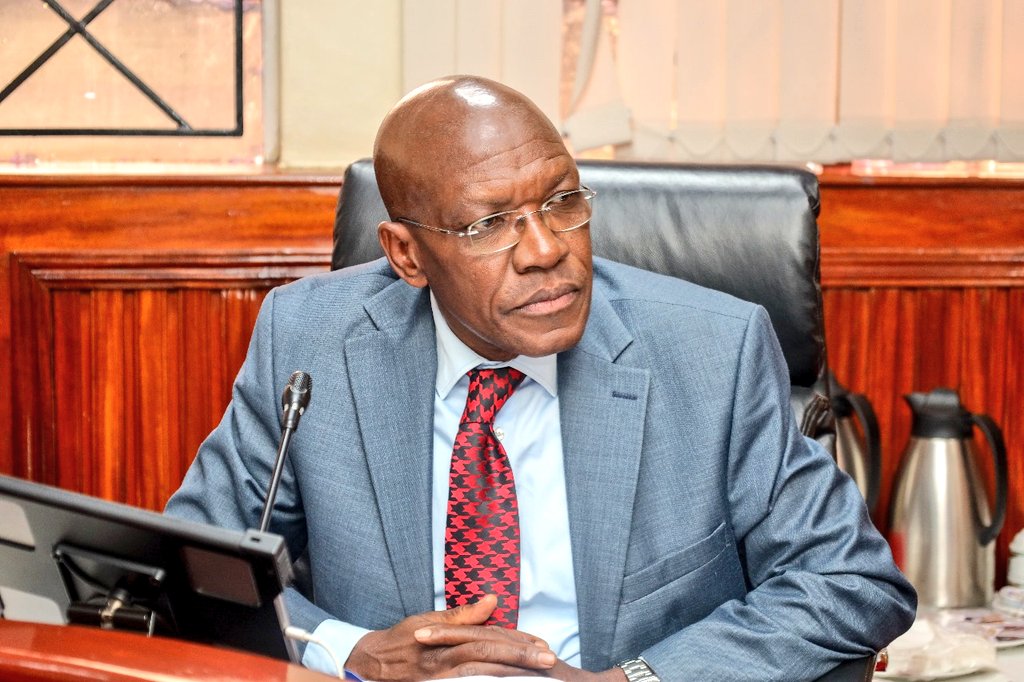KBA warns 24 banks at risk of closure over proposed core capital increase

The debate surrounding the proposed core capital increase and the role of banks in supporting MSMEs continues to draw scrutiny from both lawmakers and industry stakeholders.
The Kenya Bankers Association (KBA) has cautioned that 24 small and medium-sized banks in the country face the risk of closure if a proposed increase in the minimum core capital requirement from Sh1 billion to Sh10 billion is implemented within the next three years.
While making its presentation to Parliament on the Business Laws (Amendment) Bill, 2024 on Wednesday, KBA said the move, could also lead to the loss of 6,779 jobs in the banking sector.
More To Read
- Kenyan banks pay Sh194.8 billion in taxes despite slower growth, high costs - report
- Banks remit Sh194.81 billion in taxes as KBA calls for review of PAYE to boost purchasing power
- Banks urge CBK to cut base rate to spur private sector lending
- Private sector activities rise for the first time in five months in September
- Nyota programme: Sh5 billion Youth Fund now operational to boost enterprise
- How forged academic papers are helping fraudsters secure top government jobs — EACC
The Bill proposes to raise the minimum core capital for banks from Sh1 billion to Sh10 billion over the next three years. Core capital refers to the funds invested by a bank’s owners, ensuring financial stability and solvency.
KBA emphasised that the proposed requirement would force banks to raise an additional Sh9 billion within the given timeline or face closure.
KBA’s Acting CEO Raimond Molenje told lawmakers that 24 banks would need to raise Sh150 billion collectively to meet the new requirements, which could lead to forced mergers, acquisitions, or shutdowns.
He urged Parliament to stagger the increase over eight years instead of three, arguing that the shorter timeline could destabilise the sector.
“Members were proposing to the increase of Sh1 billion every year over the next 8 years and not 3 years as proposed. The proposed timeline may lead to a run on 24 making them unattractive to strategic partners," Molenje told MPs.
“The affected institutions may struggle to meet the new core capital requirements, potentially leading to forced acquisitions, mergers or closures."
KBA also expressed concerns about proposed penalties under the Banking Act, which would impose a Sh20 million fine on Credit Reference Bureaus (CRBs) for non-compliance, alongside an individual fine of Sh1 million.
KBA warned that such measures could increase the cost of obtaining CRB reports and called for standardised penalties across financial institutions to ensure fairness.
The Association further urged Parliament to delay amendments related to foreign direct investment management under the Banking Act until a comprehensive plan is developed.
During the session, the parliamentary committee criticised banks for prioritising investments in government securities over lending to Micro, Small, and Medium-sized Enterprises (MSMEs).
Committee Chairperson Kuria Kimani questioned why banks failed to support depositors managing start-ups and small businesses, instead opting for quick returns from government bonds.
“What challenges would you face if you were to raise the required core capital? You cannot just be collecting deposits from the public and instead of supporting your depositors who are managing start-ups or MSEMs, you prioritise investing in government securities?” Kimani posed.
Vice Chairperson Benjamin Langat echoed these concerns, urging banks to prioritise lending over heavy investments in government securities.
“Some KBA Members long stopped lending to start-ups and MSEMs to concentrate on government securities. We need to devise a way of discouraging banks from abandoning their traditional business of supporting businesses through lending to heavily investing in government bonds," he said.
Lawmakers, including Kitui Rural MP David Mboni, pressed KBA on when banks would lower their interest rates to single digits. KBA pledged to reduce rates but noted that government action, such as paying suppliers on time, was necessary to enable cheaper credit.
Meanwhile, Turkana South MP James Lomenen opposed KBA’s proposal to exempt green bonds from taxation, arguing that the bonds are already lucrative and should remain taxed.
In response to criticism, KBA highlighted its recent pledge to allocate Sh150 billion towards supporting MSMEs over the next three years, double the current Sh75 billion commitment. The initiative aims to enhance access to affordable credit for small businesses to drive growth and development.
Further, the National Treasury is seeking to reduce banks’ dominance in government securities, which currently account for Sh2.7 trillion or 44.8 per cent of outstanding long-term government bonds.
By opening the market to non-banking financial institutions, such as post-retirement medical funds, the Treasury aims to diversify the investor base and curb high interest rates on government bonds.
The debate surrounding the proposed core capital increase and the role of banks in supporting MSMEs continues to draw scrutiny from both lawmakers and industry stakeholders.
Top Stories Today













































